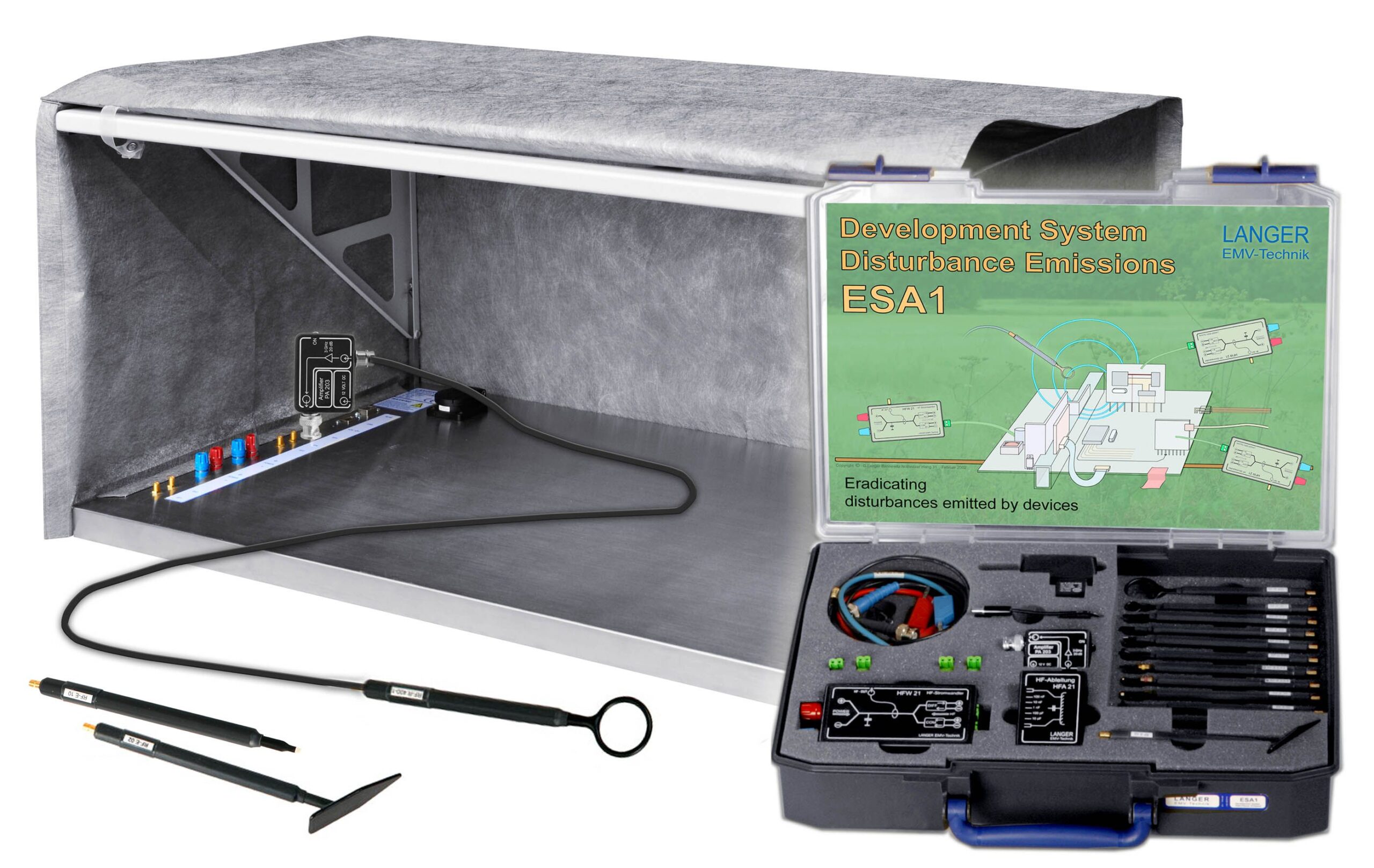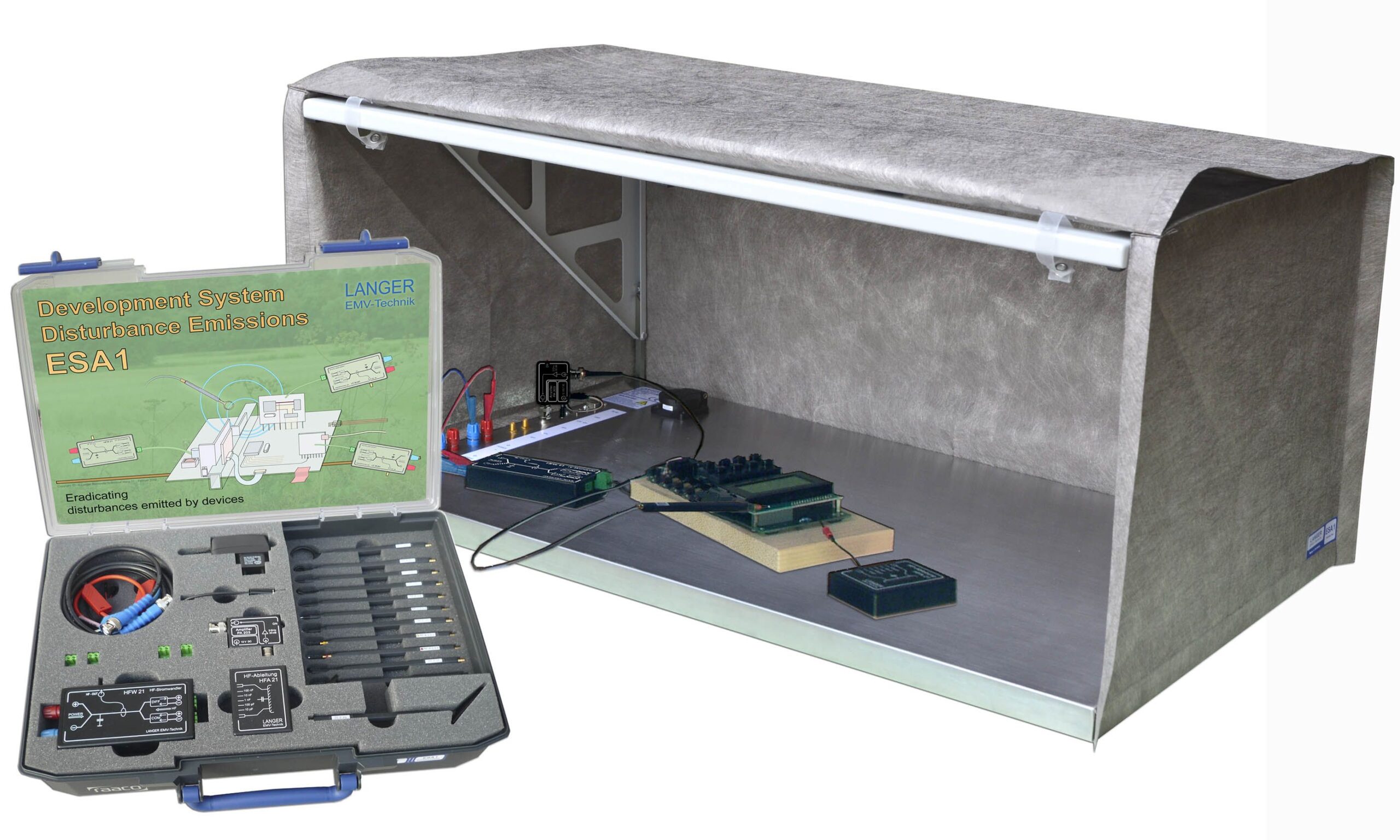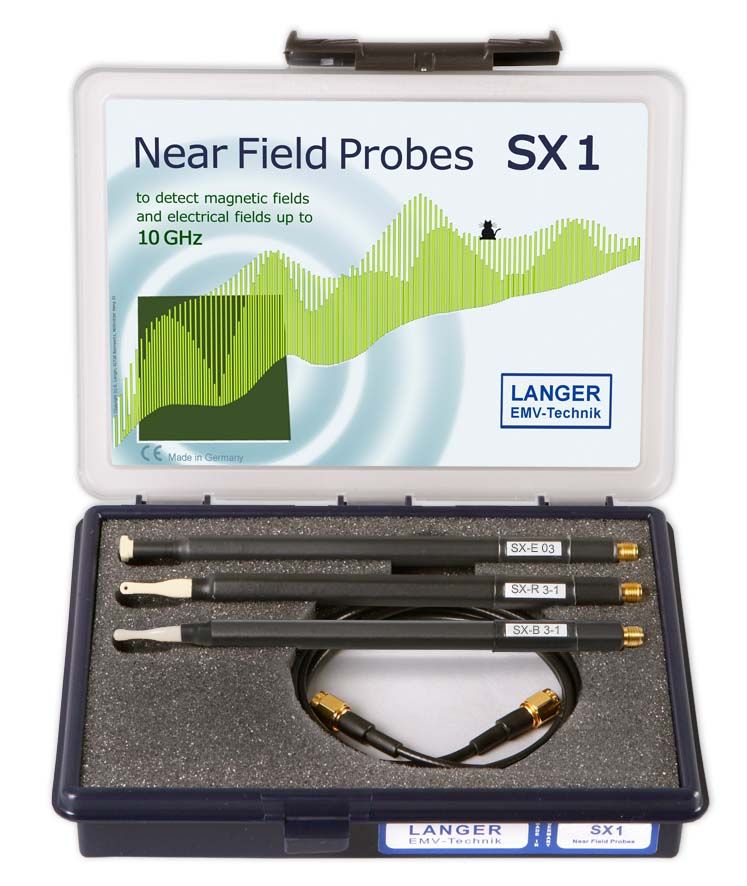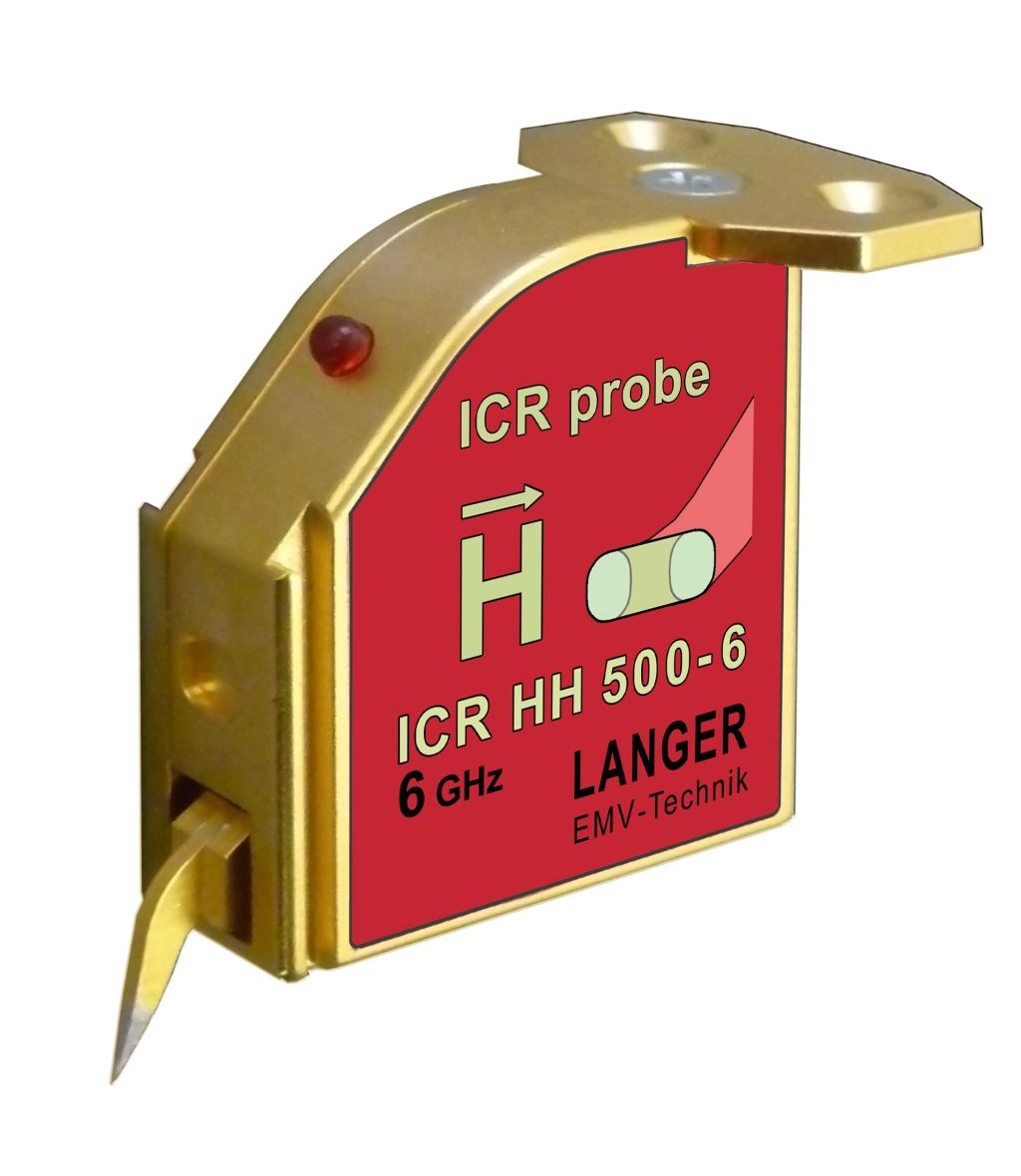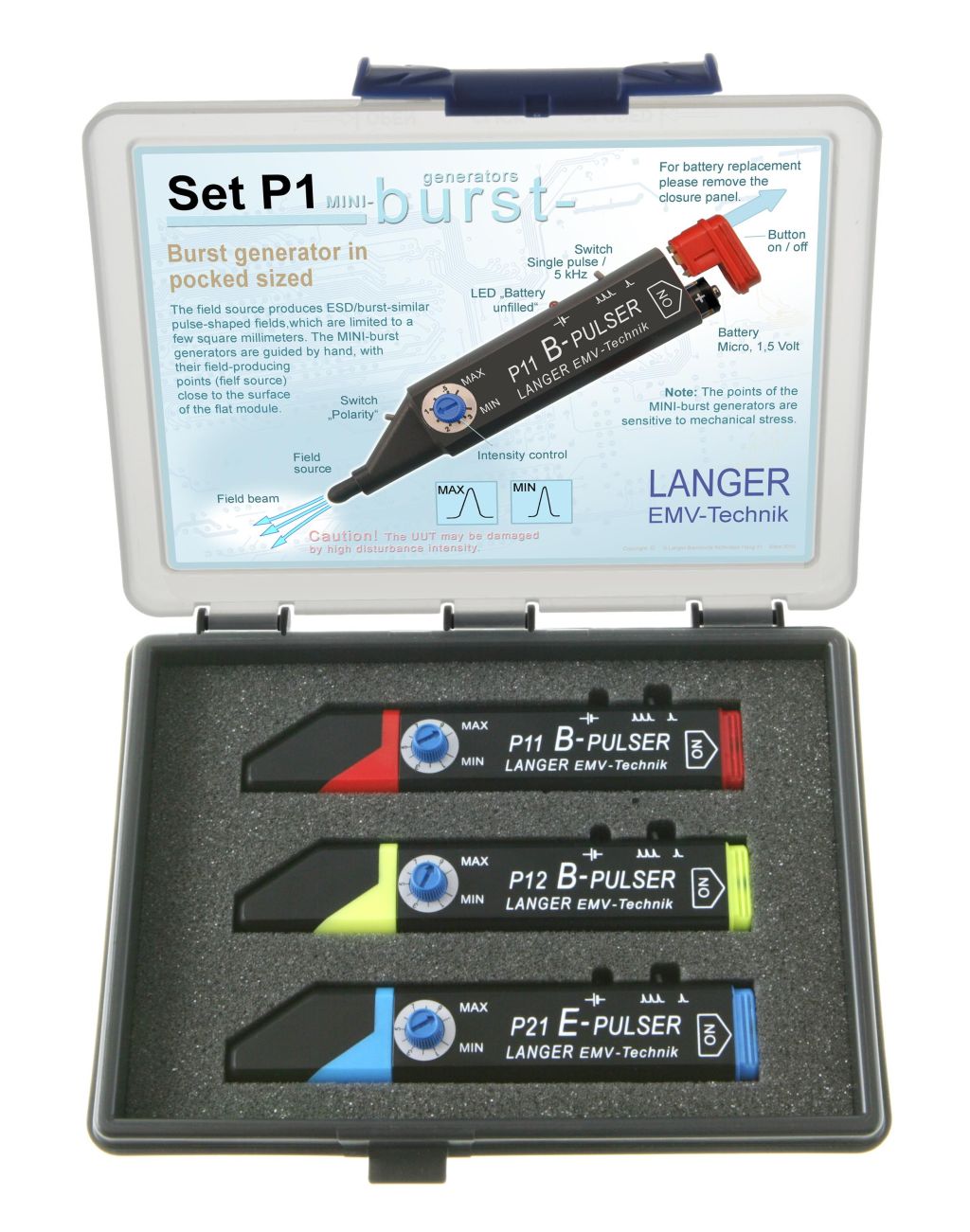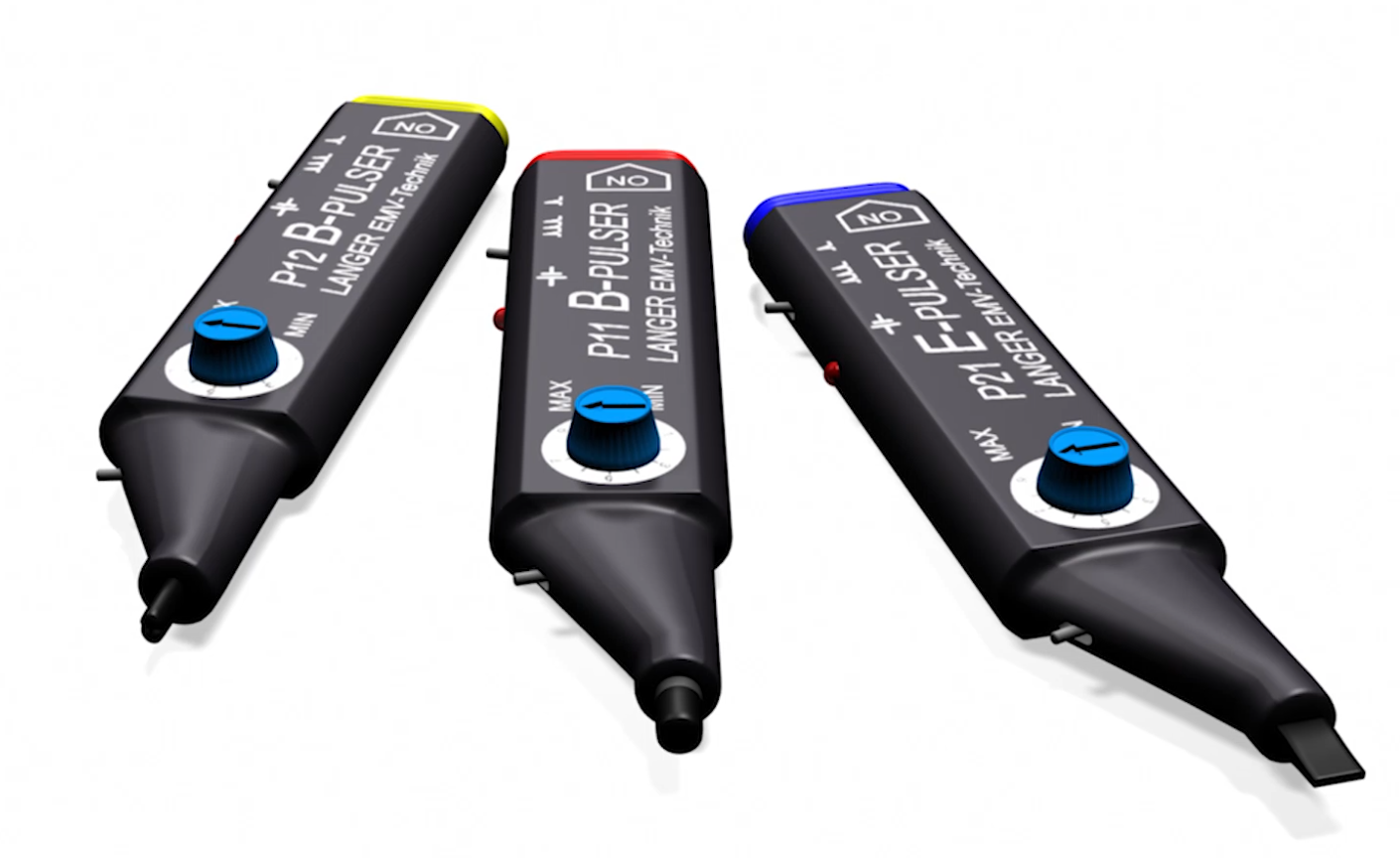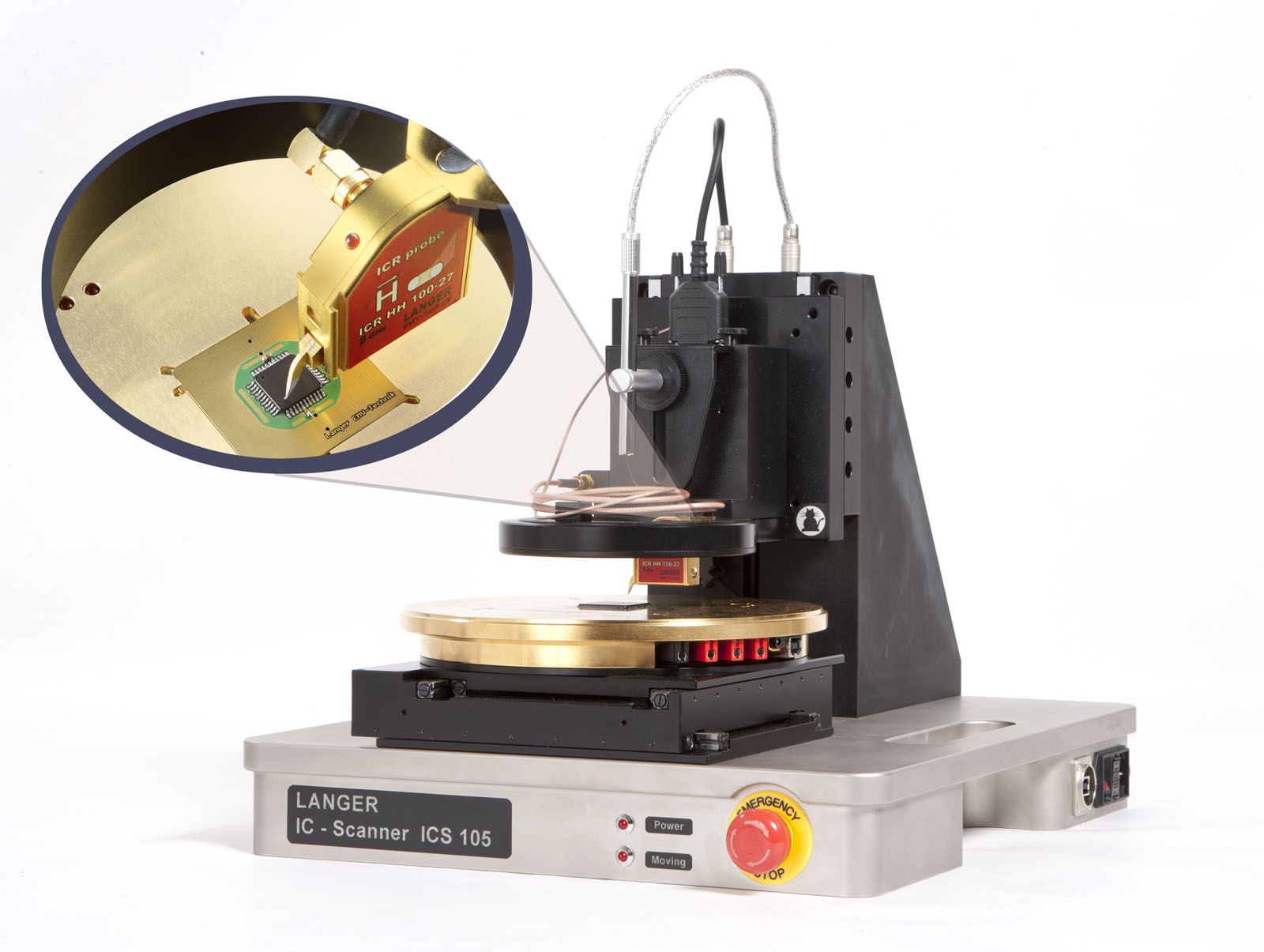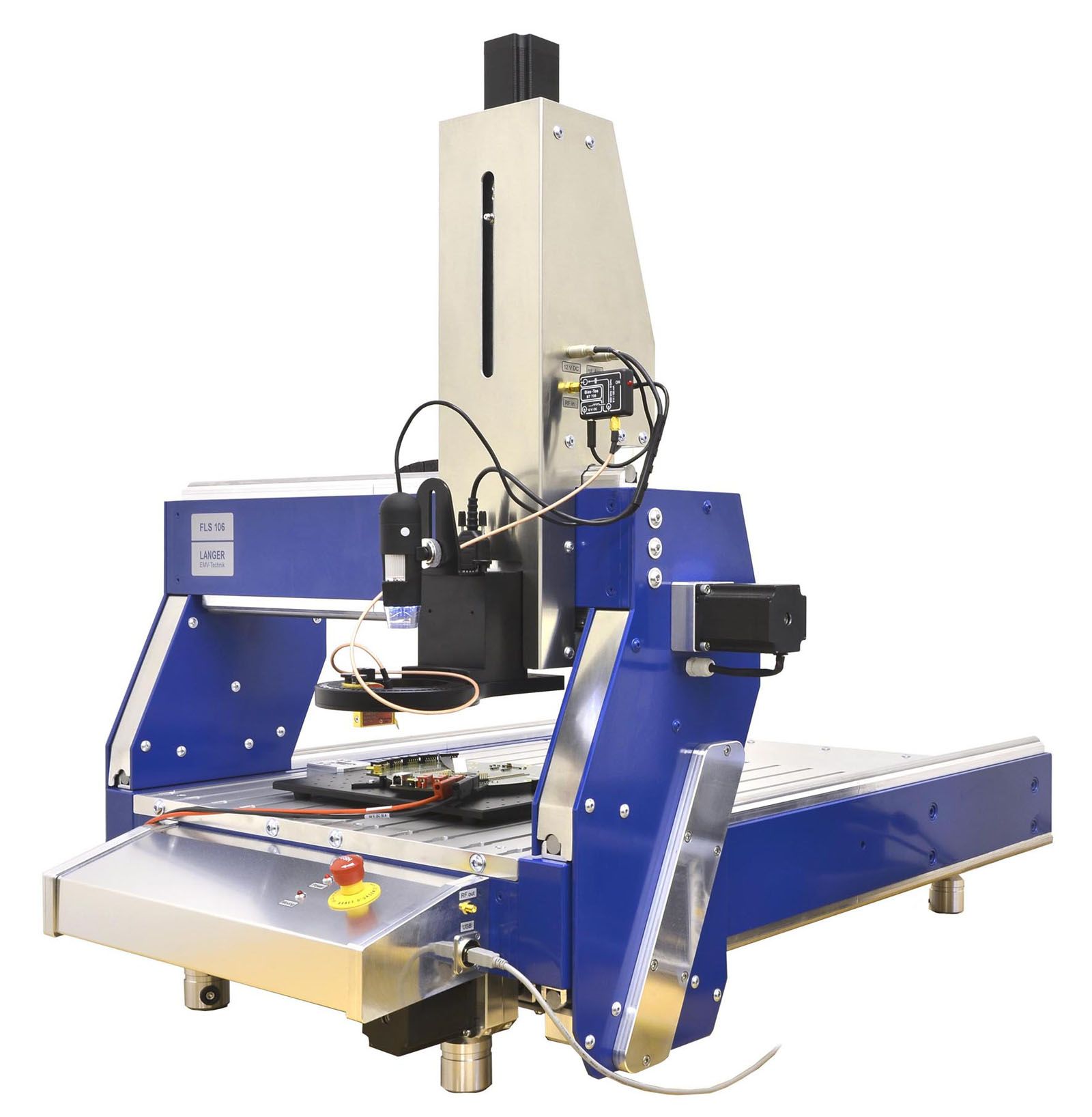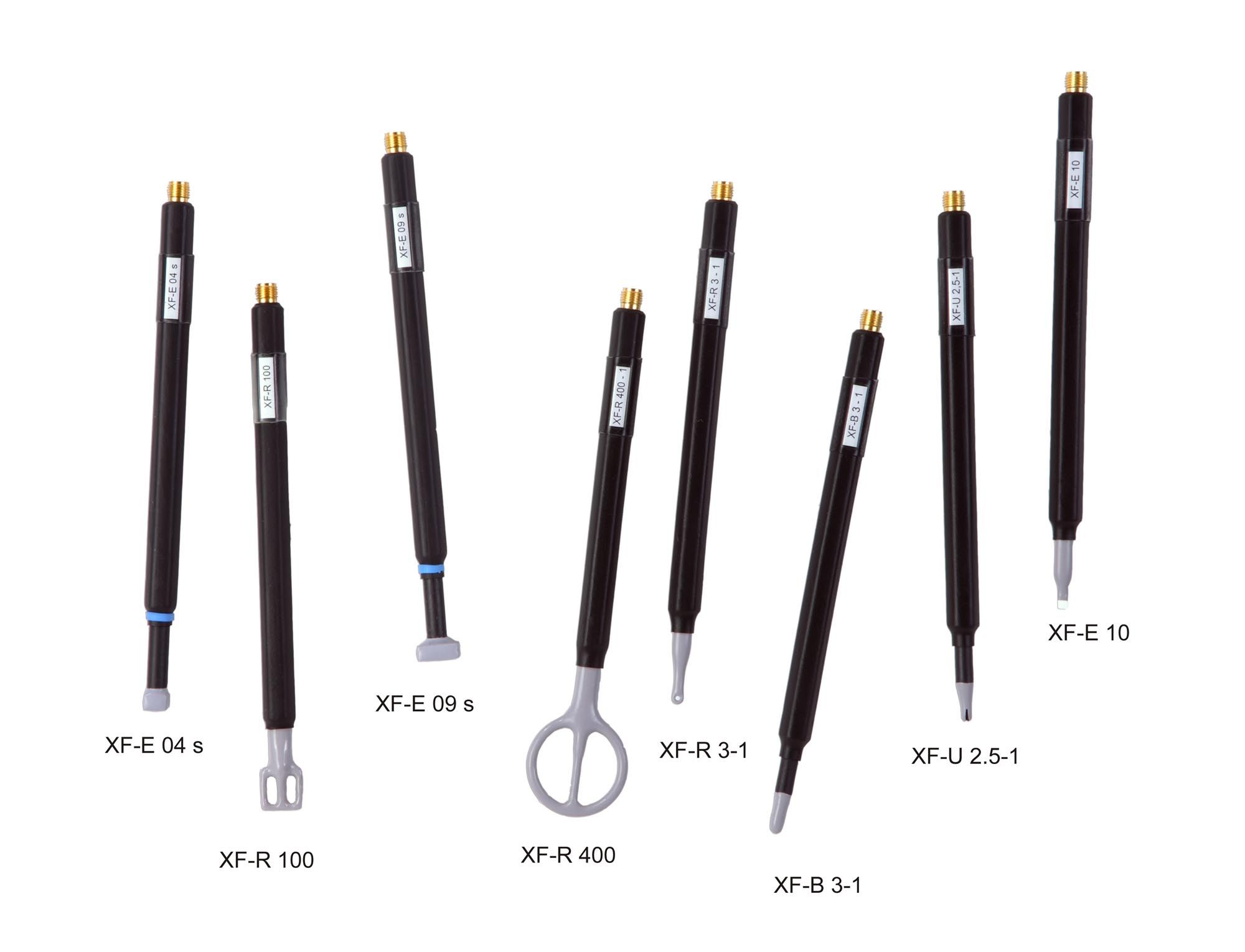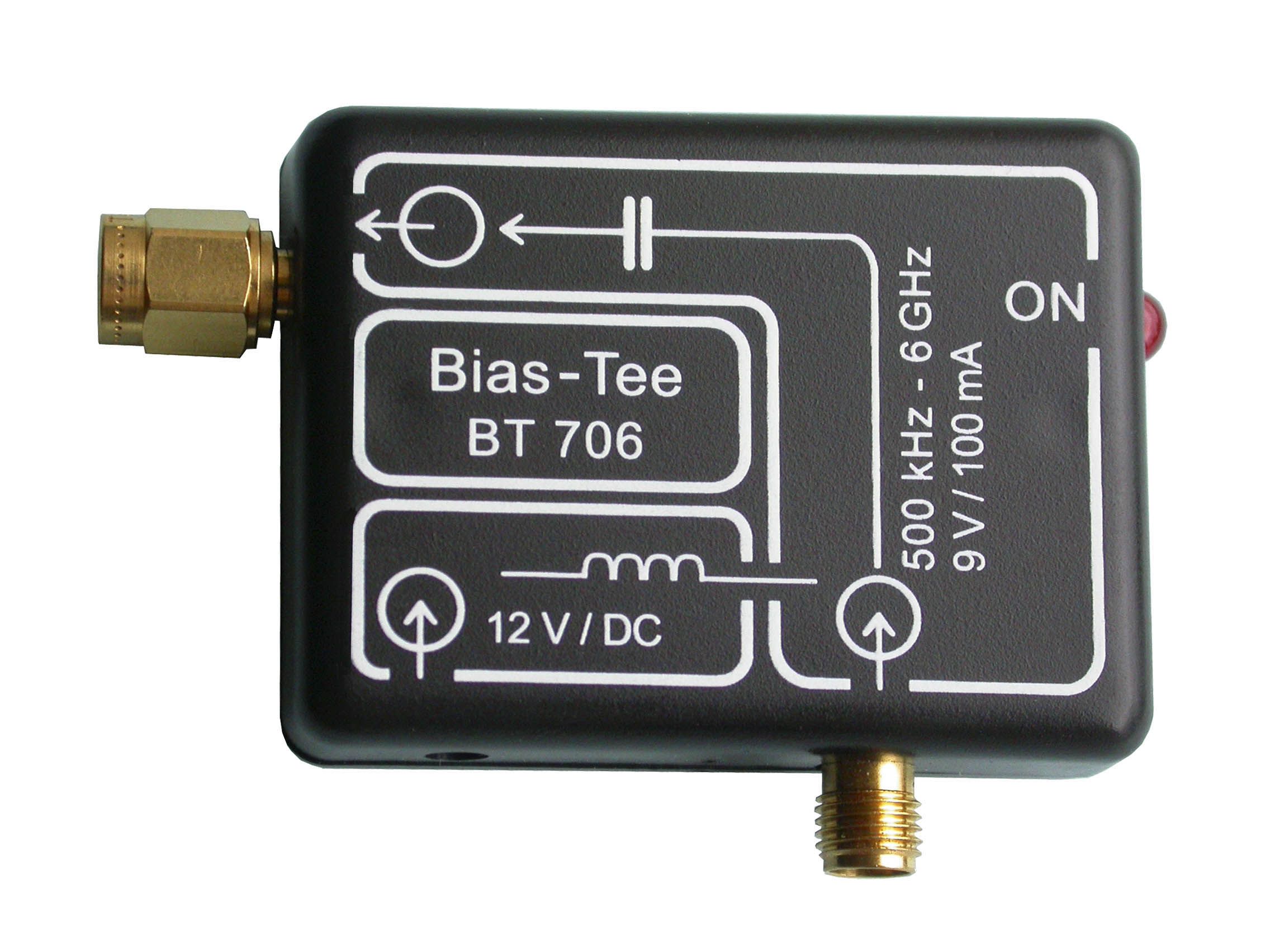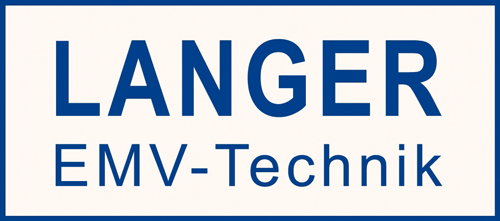
The forefront of research, development, and production in the field of EMC.
Langer EMV-Technik GmbH is a German company that focuses on research, development, production and further training in the field of electromagnetic compatibility (EMC).
Langer’s interference emission and interference immunity EMC measurement technology as well as the IC test system are used mainly in the development stage and are in worldwide demand. The EMC know-how and measurement technology from Langer EMV-Technik GmbH allow developers and designers to gain new insights into and establish more efficient work strategies for module and IC development.
The individual consultancy services provided by Langer EMV-Technik GmbH in the field of EMC during development help developers and designers find solutions to complex EMC problems in IC, device and module development fast.
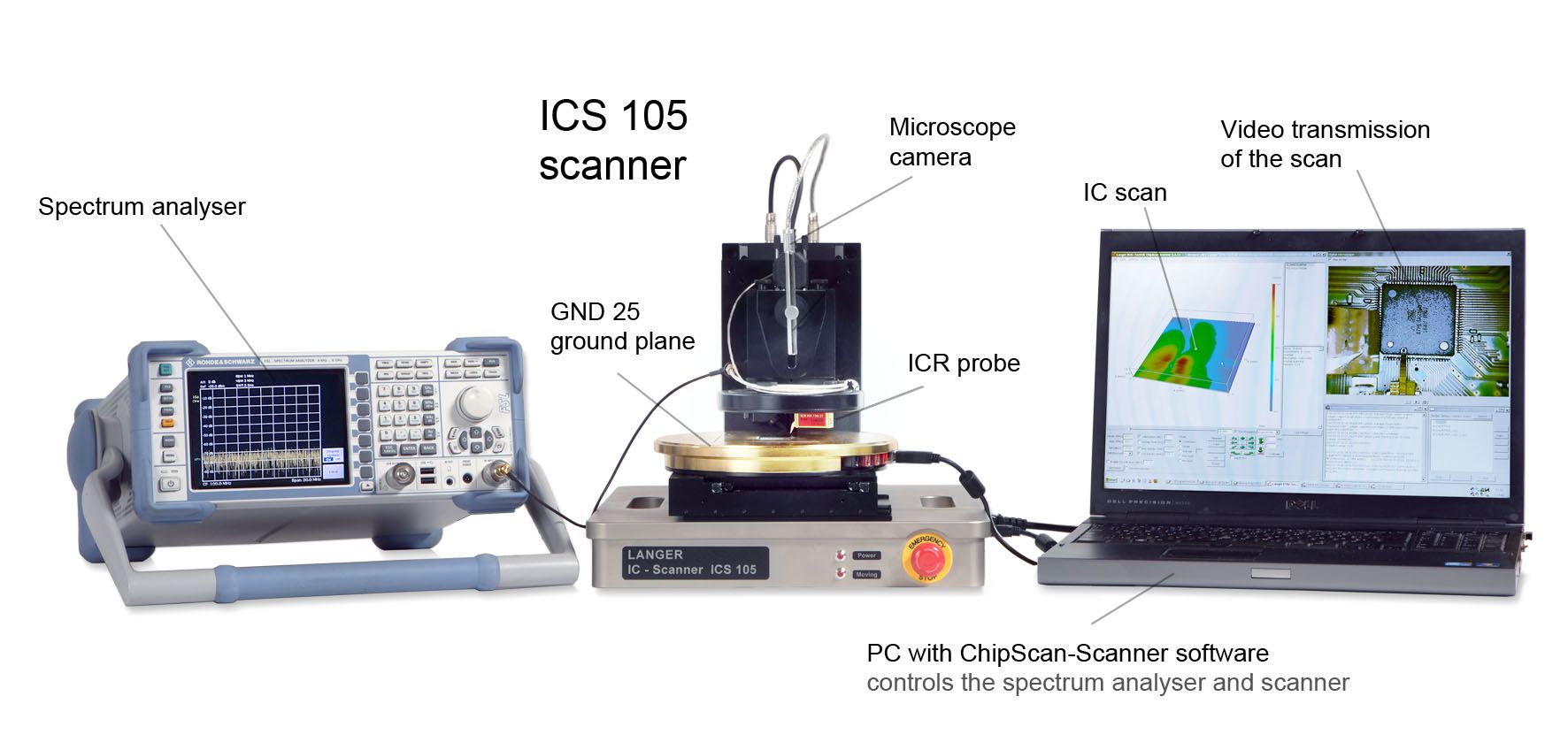
Langer offers a wide range of products for:
PCB Immunity | PCB Emission | Positioning Systems | IC Security | IC Test Systems |
Measuring and Calibration Stations | Equipment for Teaching and Training
IC Security & IC Test System
With the IC (integrated circuit) test system the developer tests the behavior of circuits during specific disturbances
(conducted and radiated) or their emissions. The IC is tested in operation. With the products for IC security,
ICs can be analyzed in detail using electromagnetic side-channel analysis (SCA) and
their function can be specifically faulted with electromagnetic disturbance pulses (EMFI).

Fault Injection
The ICI and ICI-DP probes allow for inject fast, transient magnetic or electric fields as well as current pulses into ICs. They are intended to use for electromagnetic fault injection (EMFI) or body biasing injection (BBI).
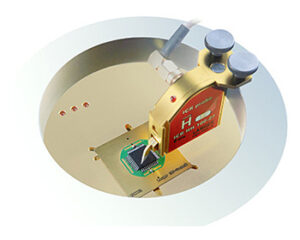
Side-channel analysis
The near-field microprobes can be used for E- and H-field measurements during development in the frequency range from 0.5 MHz to 6 GHz with a resolution of 60 µm to 300 µm..
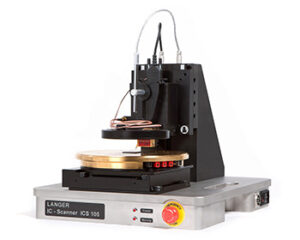
Positioning systems
Automated positioning solutions (IC scanners) for IC injection probes (ICI and ICI-DP) and near-field microprobes (ICR) from Langer EMV-Technik GmbH.
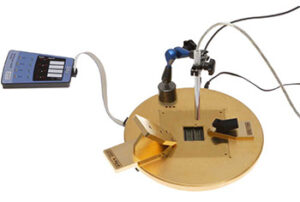
IC Test Environment
With the IC Test Environment, you can determine EMC parameters of an IC and assess the EMC strength of ICs.
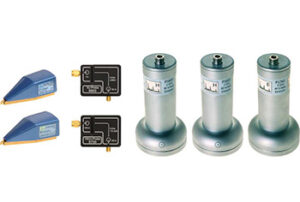
Emission
The IC probes for emission allow for conducted RF measurements and measurements of RF field emission.
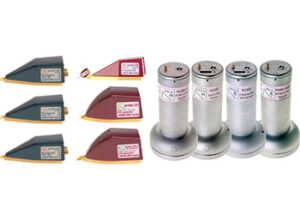
Immunity
Measuring systems for the coupling of Burst, EFT, ESD and RF are available for conducted and radiated measurements of an IC`s immunity.
PCB Immunity and PCB Emission
Measuring systems and EMC tools for accompanying immunity testing and analysis of assemblies and
devices along with emission analysis of assemblies and devices at the development stage
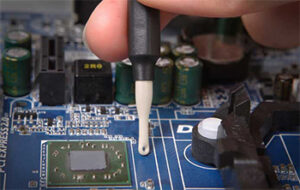
Near-Field Probes
Near-field probes are used for accompanying measurements of high-frequency, electric and magnetic RF fields on assemblies and devices.
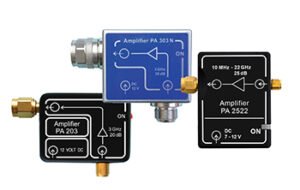
Preamplifier
To amplify the measurement signal and to protect your measurement receiver, we recommend the use of a preamplifier in the appropriate frequency range.
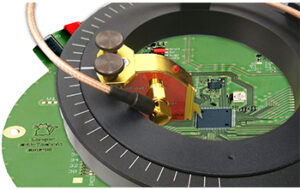
Near-Field Microprobes
The near-field microprobes (ICR) can be used for E-field and H-field measurements in a frequency range from 0.5 MHz to 6 GHz with a resolution from 60 µm to 300 µm.
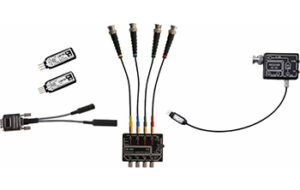
Optical Signal Transmission
Langer EMV-Technik GmbH`s optical signal transmission systems are used for the floating transmission of signals from the device under test up to a distance of 20 m.

Immunity Development System
The Immunity Development System helps you locate Burst / EFT and ESD vulnerabilities on your assembly and inside the device.
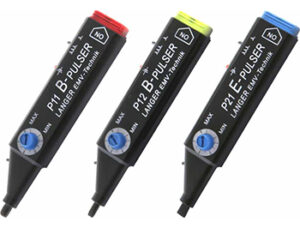
Mini Burst Field Generators
Mini burst field generators are small and handy burst generators used to detect weak spots in the device under test.
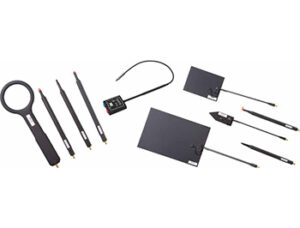
Accessory EFT/Burst generators
The field sources and the burst transformer are used to harden the device under test. They are powered by an EFT/burst generator.
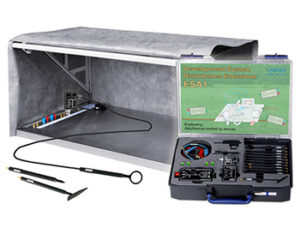
Measurement Technology for Development
The measurement technology for the development stage enables the detection of magnetic and electric field sources at your PCB directly at the workplace.
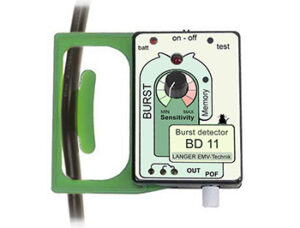
Burstdetector
The Burst detector monitors interference threshold exceedances at cable or line bundles. It selectively detects conducted disturbances which would influence the monitored device.


